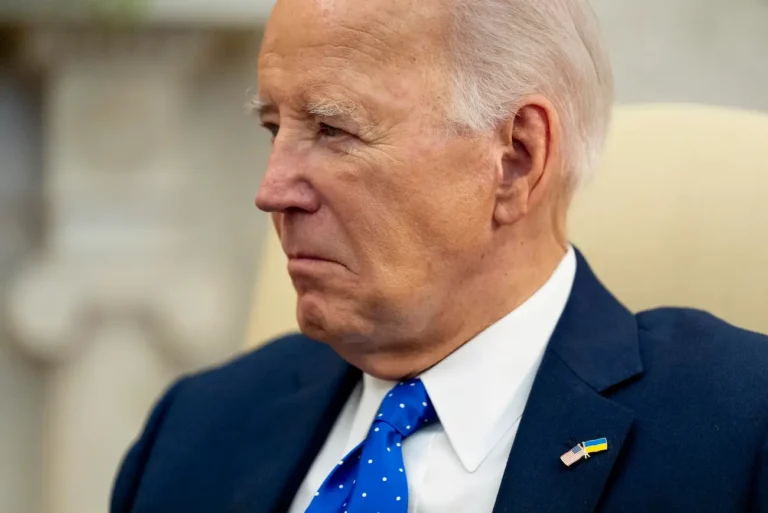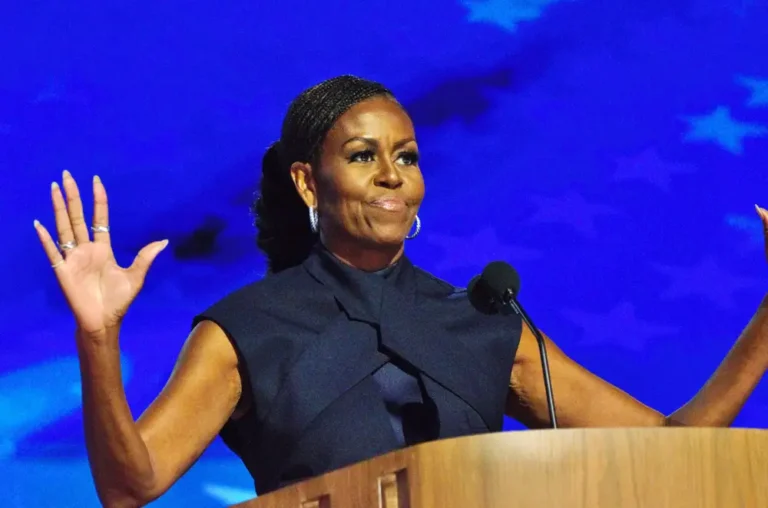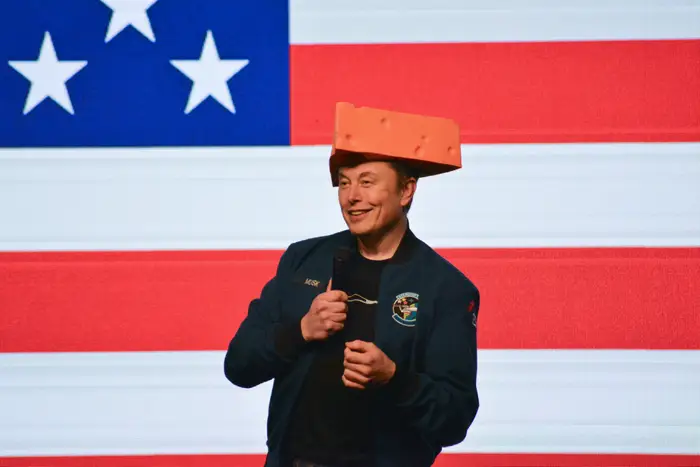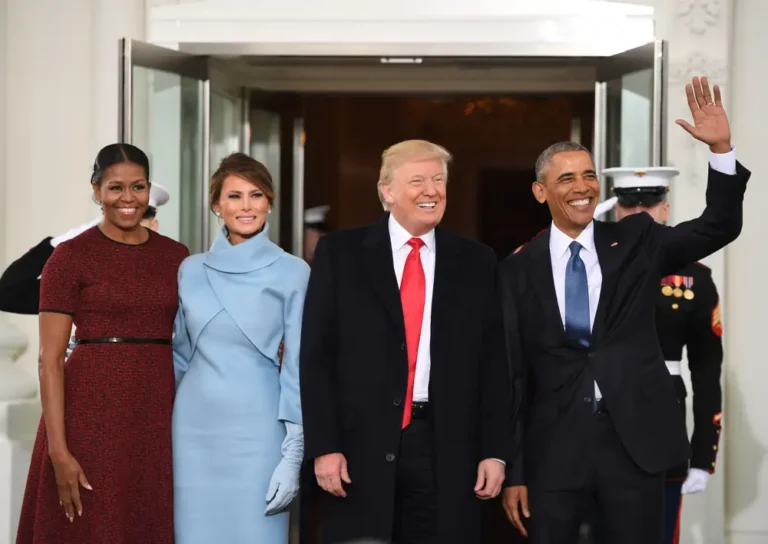Trump heads to non-union Michigan factory to spar with Biden for union votes
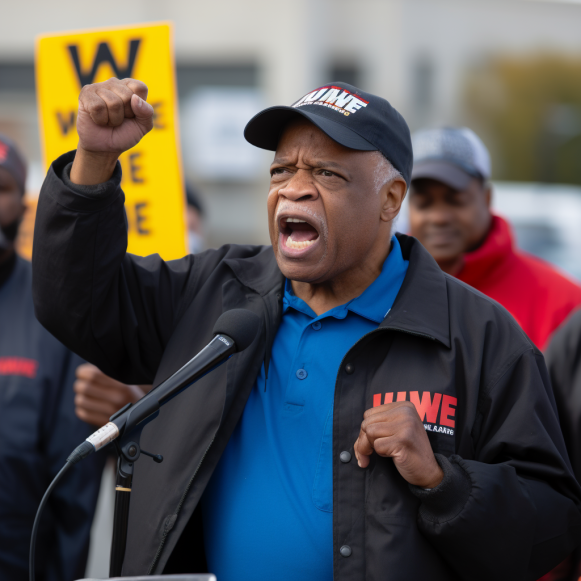
The former president is addressing a non-unionized auto parts supplier in Clinton Township
DETROIT (AP) — Former President Donald Trump will be in battleground Michigan on Wednesday night, working to win over blue-collar voters in the midst of an autoworkers’ strike, as his Republican rivals gather onstage in California for their second primary debate.
The Republican front-runner’s trip comes just a day after President Joe Biden became the first sitting president in U.S. history to walk a picket line in Detroit, joining the United Auto Workers. The union is requesting higher wages, shorter work weeks, and assurances from the nation’s top automakers that new electric vehicle jobs will be unionized.
The dueling appearances foreshadow what will almost certainly be a key dynamic in the 2024 general election, which appears to be a rematch between Trump and Biden. Michigan is expected to be a key battleground state once again, as both candidates try to portray themselves as champions of the working class.
Trump’s decision to forego another debate comes as he maintains a commanding lead in the Republican primary — despite the fact that he is facing four separate criminal indictments — and as his campaign works to pivot to the general election months before primary voting begins next year.
Trump is set to speak at Drake Enterprises, a non-unionized auto parts supplier in Clinton Township, about a half-hour outside of Detroit. According to Nathan Stemple, the company’s president, the company makes automotive and heavy-duty truck components, including gear shift levers for semi-trucks, which would be harmed by a shift to electric vehicles.
Trump’s audience will include hundreds of current and former UAW members, as well as plumbers and pipefitters union members.
The former president has attempted to use the strike to drive a wedge between Biden and union workers, a constituency that helped propel him to a surprise victory in 2016. Trump won over voters in Democratic strongholds like Michigan, Wisconsin, and Pennsylvania in that election, fundamentally reshaping voting alliances as he railed against global trade deals and promised to resurrect dying manufacturing towns.
However, Biden won those states back in 2020 by emphasizing his working-class roots and dedication to organized labor. He frequently refers to himself as the “most pro-union president” in American history, arguing that the investments his administration is making in green energy and electric vehicle manufacturing will ensure the industry’s future in the United States.
This time, Trump is attempting to capitalize on dissatisfaction with Biden’s handling of the economy in the face of persistent inflation. He has repeatedly warned that Biden’s embrace of electric vehicles — a key component of his clean-energy agenda — will eventually lead to job losses, amplifying the concerns of some autoworkers who are concerned that electric cars require fewer people to manufacture and that factories that produce them are not guaranteed to be unionized.
“Joe Biden’s draconian and indefensible Electric Vehicle mandate will annihilate the U.S. auto industry and cost countless thousands of autoworkers their jobs,” Trump said after Biden’s visit on Tuesday.
While Trump has portrayed himself as pro-worker, he has repeatedly clashed with union leaders and attempted to turn union members against their leaders. He urged autoworkers not to pay union dues in a recent campaign video, claiming their leaders have “got some deals going for themselves.”” “I WILL KEEP YOUR JOBS AND MAKE YOU RICH!!!” he promised.
The UAW posted a video on its Facebook page just hours before Trump’s visit protesting factory closures by Detroit’s automakers that included 2017 footage of Trump telling a northern Ohio crowd that auto jobs would be returning. General Motors closed a massive assembly plant in Lordstown, Ohio, two years later, resulting in the loss of thousands of jobs.
While the union withdrew its support for Biden after endorsing him in 2020, UAW President Shawn Fain was by Biden’s side during his visit on Tuesday and remained a harsh critic of Trump.
“I don’t think he cares about the working class.” I believe he is concerned about the billionaire class and corporate interests. “I believe he’s just trying to pander to people and say what they want to hear, which is unfortunate,” Fain said.
Union leaders recognize that the transition to electric vehicles is imminent, but whether new battery manufacturing plants will be unionized is a major concern for the UAW in contract negotiations. They argue that strengthening the union’s role in the auto industry’s clean energy future will result in higher wages and job security.
The auto industry is divided on whether the transition to EVs will cost union jobs. According to some executives, because there are fewer moving parts, companies will require 30% to 40% fewer workers to assemble EVs. Others, however, believe that EVs will necessitate a comparable amount of labor.
Union leaders say Trump’s first term was far from worker-friendly, citing unfavorable rulings from the nation’s top labor board and the United States Supreme Court, as well as unfulfilled promises of automotive jobs and the closure of the Ohio GM plant.
Aides say Trump will use his speech to criticize Biden’s economic policies, claiming that Biden’s presidency has harmed middle- and working-class families. He will also highlight Biden’s record of supporting free trade agreements, which Trump has blamed for job losses.
“Any working, middle-class voter in Michigan and across the country is feeling the direct effects of Biden’s terrible economic policies,” Trump senior adviser Jason Miller said.
Trump has not commented on the union’s proposal, but aides say its members “are in a much different place than their political leaders.”
Workers were divided along the picket line. Adrian Mitchell, who works at the GM parts warehouse where Biden stopped, believes Biden is better for the middle class than a second Trump term.
“He supports the people in regards to coming out here, showing solidarity with the UAW workers,” said Mitchell. “He’s always been for the middle class.”
Nonetheless, Mitchell stated that workers are concerned that the transition from internal combustion engines to electric vehicles will cost them their jobs.
“I think we’re all worried about that,” he replied. “But I think eventually it’ll come together.”
However, Matthew Coleman of Romulus, Michigan, who has worked at the parts warehouse for the last nine years, believes Trump would be a better president for the middle class, owing to his opposition to the transition from internal combustion to electric vehicles.
“I don’t think it benefits the middle class,” he replied. “We can’t even afford the cars we’re making now.” I believe it will result in the elimination of many current jobs.”
The UAW’s targeted strikes against the Big Three automakers — General Motors, Stellantis, and Ford — began on September 14 at midnight and have since spread to 38 parts distribution centers in 20 states.
The union is requesting 36% raises in general pay over four years, as well as a 32-hour week with 40 hours of pay and the reinstatement of cost-of-living pay increases, among other benefits. It also wants to be able to represent workers at ten electric vehicle battery factories, the majority of which are joint ventures between automakers and South Korean battery manufacturers.
While Biden has not mandated electric vehicles, he has set the goal of having half of all new vehicle sales be electric by 2030. His administration has also proposed stringent new automobile pollution limits, requiring up to two-thirds of new vehicles sold in the United States to be electric by 2032, a nearly tenfold increase over current electric vehicle sales. That suggestion is not final.


